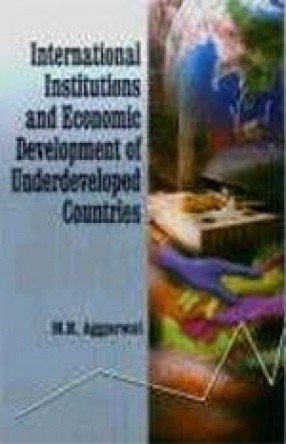This book has been organized into two parts. The first part broadly covers the papers on the traditional and changing role and relevance of IMF, the provision and working of WTO, (erstwhile GATT) from the point of view of South including India, the analysis of the real exchange rates and the second part deals with the policies and performance of World Bank and its affiliates, in accelerating the process of real economic growth with equity, during the last two decades in the developing areas. Some of these papers focus sharply on poverty—a most important and pressing issue—its different dimensions and the role of international institutions in addressing this issue. The contents of the papers contain a thoroughly, updated exposition of the various aspects relating to the major theme. The papers, in particular included in Section A, besides providing a comprehensive assessment of the recent major developments in the trading, financial and currency markets at the global level particularly after 1985, and historical profile of the development paradigm and strategies and the inferences examine critically and systematically the developmental role of IMF, the contribution of micro-and macro-economic factors in creating banking crisis, the measures both exante and expost taken in managing severe financial crisis and other macro-economic shocks which have become a world-wide phenomenon in recent years, the suggestions to reform the financial architecture and WTO, the serious distortions and inequities in the existing trading and monetary order, and their economic and social impact on the third world countries and emerging economies. Also, the role of the real exchange rates, an important macro-economic variable, need of the optimum level of sterilized intervention to protect the exchange rates both nominal and effective, measures to avoid future financial crisis like those suffered by East Asian countries have been extensively analysed in designing the long-term and medium-term strategies consistent for achieving a respectable rate of "green growth" and healthy and vibrant global external sector, under the present waves of globalization, liberalization and privatization, sweeping at the world level. The existing global trade and monetary systems of course are not without their inequalities and abuses—many of them seriously, and if not managed properly particularly in terms of strengthening of the basic rules and discipline and their implementation, by the major players may create manifold economic problems and social tensions for the developing world in the not too distant future in which the state lacks strength and capabilities to implement on-going reforms in a proper perspective, both at the internal and external level.
International Institutions and Economic Development of Underdeveloped Countries
In stock
Free & Quick Delivery Worldwide
reviews
Bibliographic information
Title
International Institutions and Economic Development of Underdeveloped Countries
Author
Edition
1st. Ed.
Publisher
ISBN
8176293784
Length
xix+371p., Tables; Fig.
Subjects





There are no reviews yet.